Faculty of Arts
Psychology
Introduction to Psychology – First Canadian Edition 
By Jennifer Walinga, Royal Roads University, and Charles Stangor, University of Maryland
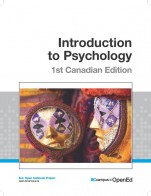 This textbook is an adaptation of the open Introduction to Psychology book by Charles Stangor, a professor of psychology at the University of Maryland. A psychology professor from Royal Roads University adapted it as part of the B.C. Open Textbook Project and added several case studies, examples, and sections. This textbook, and its original version, have both been successfully adopted and has over a 4.5/5 rating from several professors.
This textbook is an adaptation of the open Introduction to Psychology book by Charles Stangor, a professor of psychology at the University of Maryland. A psychology professor from Royal Roads University adapted it as part of the B.C. Open Textbook Project and added several case studies, examples, and sections. This textbook, and its original version, have both been successfully adopted and has over a 4.5/5 rating from several professors.
Includes: instructor resources, student resources, applications, summaries, case studies, and exercises and critical thinking problems.
Attribution: Introduction to Psychology – First Canadian Edition By Jennifer Walinga and Charles Stangor is licensed under a Creative Commons Attribution-NonCommercial-Share Alike 4.0 International License, except where otherwise noted
Introduction to Psychology
By Jorden A. Cummings and Lee Sanders, University of Saskatchewan
 This textbook is an adaptation of existing open materials (Introduction to Psychology – 1st Canadian Edition, Research Methods in Psychology – 3rd American Edition, and The Noba Project) along with new content.
This textbook is an adaptation of existing open materials (Introduction to Psychology – 1st Canadian Edition, Research Methods in Psychology – 3rd American Edition, and The Noba Project) along with new content.
Includes: Interactive H5P activities
Attribution: Introduction to Psychology by Jorden A. Cummings & Lee Sanders is licensed under a Creative Commons Attribution-NonCommercial-ShareAlike 4.0 International License, except where otherwise noted.
Psychology: OpenStax
By: Rose M. Spielman
Psychology is designed to meet scope and sequence requirements for the single-semester introduction to psychology course. The book offers a comprehensive treatment of core concepts, grounded in both classic studies and current and emerging research.
Includes: applications, instructor resources, student resources, animations and simulations, as well as content, critical thinking, and reflection exercises.
Attribution: Psychology: OpenStax by Rose M. Spielman is licensed under a Creative Commons Attribution-NonCommercial-Share Alike 4.0 International License, except where otherwise noted
Discover Psychology 2.0 – A Brief Introductory Text
Edited by: Edward Diener and Robert Biswas-Diener (eds)
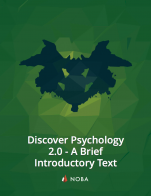
This textbook presents core concepts common to introductory courses. The 15 units cover the traditional areas of intro-to-psychology; ranging from biological aspects of psychology to psychological disorders to social psychology.
Includes: instructor resources, external resources, applications, discussion questions, and summaries.
Attribution: Discover Psychology 2.0 – A Brief Introductory Text edited by Edward Diener and Robert Biswas-Diener is licensed under a Creative Commons Attribution-NonCommercial-Share Alike 4.0 International License, except where otherwise noted
Research Methods in Psychology: 2nd Canadian Edition
By: Paul Christopher Price, I-Chant A. Chiang and Rajiv Jhangiani
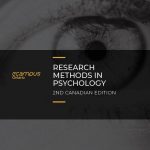 This peer-reviewed open textbook introduces students to the fundamental principles of what it is like to think like a psychology researcher. It connects research being generated in Canada as well as provide an accurate picture of the Canadian context for ethical human research. This textbook is an adaptation of one written by Paul C. Price (California State University, Fresno).
This peer-reviewed open textbook introduces students to the fundamental principles of what it is like to think like a psychology researcher. It connects research being generated in Canada as well as provide an accurate picture of the Canadian context for ethical human research. This textbook is an adaptation of one written by Paul C. Price (California State University, Fresno).
Includes: exercises, key takeaways and glossary.
Attribution: Research Methods in Psychology: 2nd Canadian Edition by Paul Christopher Price, I-Chant A. Chiang and Rajiv Jhangiani is licensed under a Creative Commons Attribution-NonCommercial-Share Alike 4.0 International License, except where otherwise noted
Abnormal Psychology
Abnormal Psychology
By: Jorden A. Cummings, University of Saskatchewan
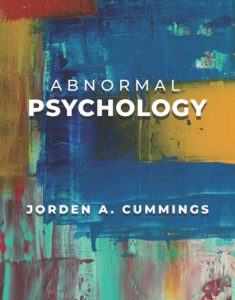 This text has been created from a combination of original content and materials compiled and adapted from several open educational resources.
This text has been created from a combination of original content and materials compiled and adapted from several open educational resources.
Attribution: Abnormal Psychology by Jorden A. Cummings is licensed under a Creative Commons Attribution Non-Commercial ShareAlike 4.0 International license.
Social Psychology
Together: The Science of Social Psychology
By Robert Biswas-Diener
The science of social psychology investigates the ways other people affect our thoughts, feelings, and behaviors. It is an exciting field of study because it is so familiar and relevant to our day-to-day lives.
Includes: instructor resources, student resources, summaries, and real-world applications.
Attribution: Together: The Science of Social Psychology by Robert Biswas-Diener is licensed under a Creative Commons Attribution-NonCommercial-Share Alike 4.0 International License, except where otherwise noted
Principles of Social Psychology: 1st International Edition
By: Charles Stangor, Rajiv Jhangiani and Hammond Tarry
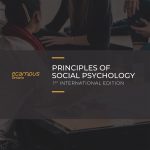 The first international edition of this textbook provides students with an introduction to the basic concepts and principles of social psychology from an interactionist perspective.
The first international edition of this textbook provides students with an introduction to the basic concepts and principles of social psychology from an interactionist perspective.
Attribution: Principles of Social Psychology: 1st International Edition by Charles Stangor, Rajiv Jhangiani and Hammond Tarry is licensed under a Creative Commons Attribution-NonCommercial-Share Alike 4.0 International License, except where otherwise noted
.
Addiction
Theories and Biological Basis of Addiction
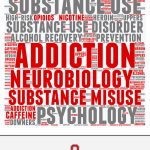 By: Audrey Begun, Ohio State University
By: Audrey Begun, Ohio State University
Includes: Embedded interactive activities
Attribution: Theories and Biological Basis of Addiction by Audrey Begun is licensed under a Creative Commons Attribution-NonCommercial 4.0 International License, except where otherwise noted.
Statistics
Think Bayes: Bayesian Statistics Made Simple
By: Allen B. Downey
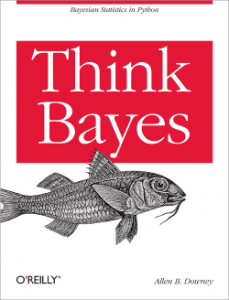 This statistics text has been positively-reviewed. It covers introductory concepts in Bayesian statistics, from computational statistics to dimensions.
This statistics text has been positively-reviewed. It covers introductory concepts in Bayesian statistics, from computational statistics to dimensions.
Includes: student resources, summaries, examples, problems, and real-world applications.
Attribution: Think Bayes: Bayesian Statistics Made Simple by Allen B. Downey is licensed under a Creative Commons Attribution-NonCommercial 4.0 International License, except where otherwise noted.
If you have questions about Open Educational Resources or other Open resources in your subject area, please contact your subject liaison librarian.

